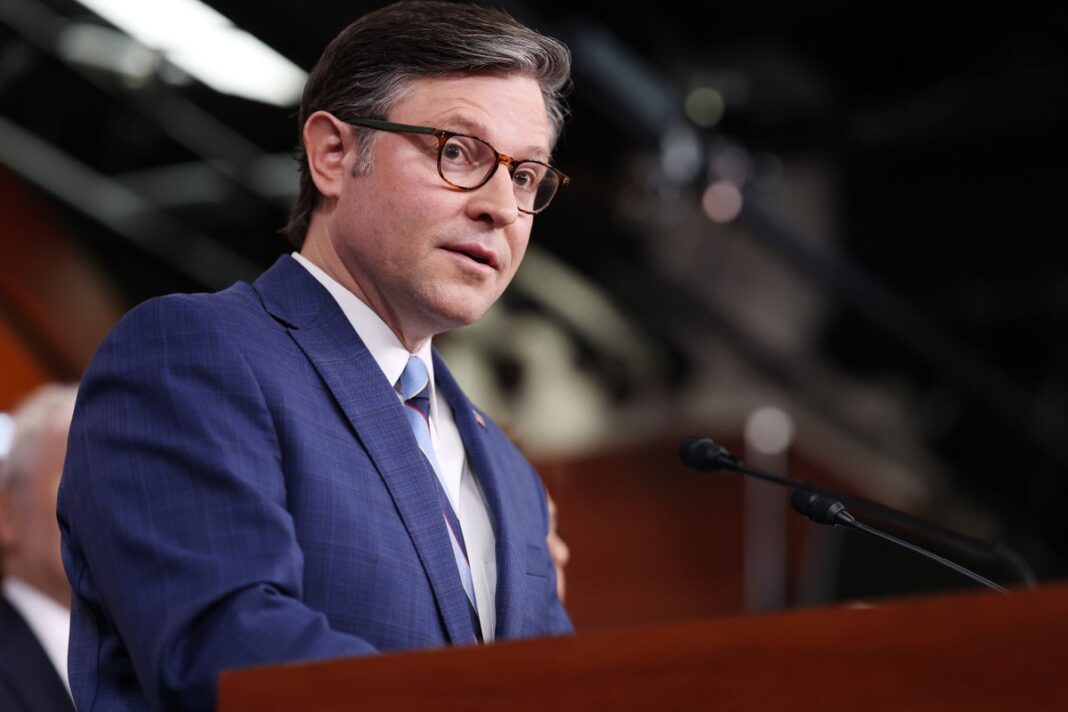Analyzing the Intersection of Politics and Social Media: Trump’s Controversial AI Video and Its Implications
Context of the “No Kings” Rally
The recent “No Kings” rally marked a significant moment in the ongoing political discourse in the United States. It saw over 7 million participants across various cities united in opposition to former President Donald Trump’s controversial use of executive power. Against this backdrop, Trump posted an AI-generated video on Truth Social, depicting himself in a fighter jet dropping what appeared to be feces on protesters. This provocative imagery has fueled discussions about the role of social media in modern politics.
The Role of House Speaker Mike Johnson
In a press conference that followed the rally, House Speaker Mike Johnson defended Trump’s post, suggesting it was an example of effective satire. Johnson remarked, “The president uses social media to make a point,” which underscores the evolving nature of political messaging in an age dominated by online platforms. However, he did not elucidate what point Trump was aiming to convey, leaving observers to speculate about the underlying message.
Public Reactions and Backlash
The video, characterized by its crude humor, ignited mixed reactions. Critics argue that posting such content diminishes the gravity of political discourse, while supporters might view it as a bold form of free expression. The criticisms intensified when Johnson pointed to signs from protesters calling for the execution of political figures, stating, “He’s not calling for the murder of his political opponents.” This statement reflected an attempt to draw a distinct line between Trump’s activities and the aggressive rhetoric used by some protesters.
The Rallies: A Catalyst for Political Division
The “No Kings” rallies targeted Trump’s unilateral actions, particularly in sending military units into Democrat-led cities and his mass immigration enforcement via ICE. Critics from both sides of the aisle have argued that Trump’s leadership style resembles more of an authoritarian figure than that of a democratically elected president. However, Johnson and other Republican leaders have rebutted these claims, emphasizing that the U.S. operates under a constitutional framework with checks and balances.
Senate Dynamics and Government Shutdown
Johnson’s comments coincided with discussions about a potential government shutdown, as Senate Democrats faced pressure to pass a clean continuing resolution (CR). In stark contrast, Republicans maintained that the ongoing protests were obstructing legislative progress, framing the “No Kings” gatherings as “hate America” events. House Majority Whip Tom Emmer indicated that the protests could be influencing Democratic Senators’ decisions regarding the CR, highlighting the interconnectedness of public sentiment and legislative action.
Clashing Narratives
As discussions unfolded, prominent Republican figures took the opportunity to condemn both the protests and the rhetoric surrounding them. For instance, Congressman Chip Roy criticized the demonstrators by referencing a Chicago teacher who was fired for her inappropriate gesture during the protests, arguing that such actions needed to be universally denounced. This reflects a broader narrative within the Republican Party focused on contrasting the alleged violence and chaos of opponents’ protests with their own portrayal of patriotism and order.
The Long-Term Impact of Social Media on Politics
With social media shaping political campaigning and discourse, Trump’s use of platforms like Truth Social raises pertinent questions about the boundaries of acceptable political communication. The distinction between effective satire and harmful rhetoric remains a contentious point. Some observers argue that the ability to share sensational content may distort public understanding of serious issues, contributing to polarization.
Constitutional Concerns
As discussions surrounding executive power and authority intensify, Johnson’s defense of Trump’s actions is particularly provocative. By claiming, “If President Trump was a king, he would have closed the national parks,” Johnson implied that Trump’s decisions were democratic rather than authoritarian. However, such statements invite further scrutiny regarding the balance of power and the implications of presidential authority.
Looking Ahead
As the Senate prepares to reconvene to vote on the continuing resolution, the political landscape remains charged. The inability to reach a bipartisan agreement not only threatens government operations but also stands as a reflection of the deepening divisions within American politics. The outcome of these discussions will likely shape the narratives leading into the next election cycle, influenced by both the events of the “No Kings” rallies and the pervasive impact of social media.
By examining these intertwined narratives, one gains a clearer understanding of the complexities of contemporary political discourse, the role of social media in shaping public opinion, and the ongoing debates surrounding executive authority.



